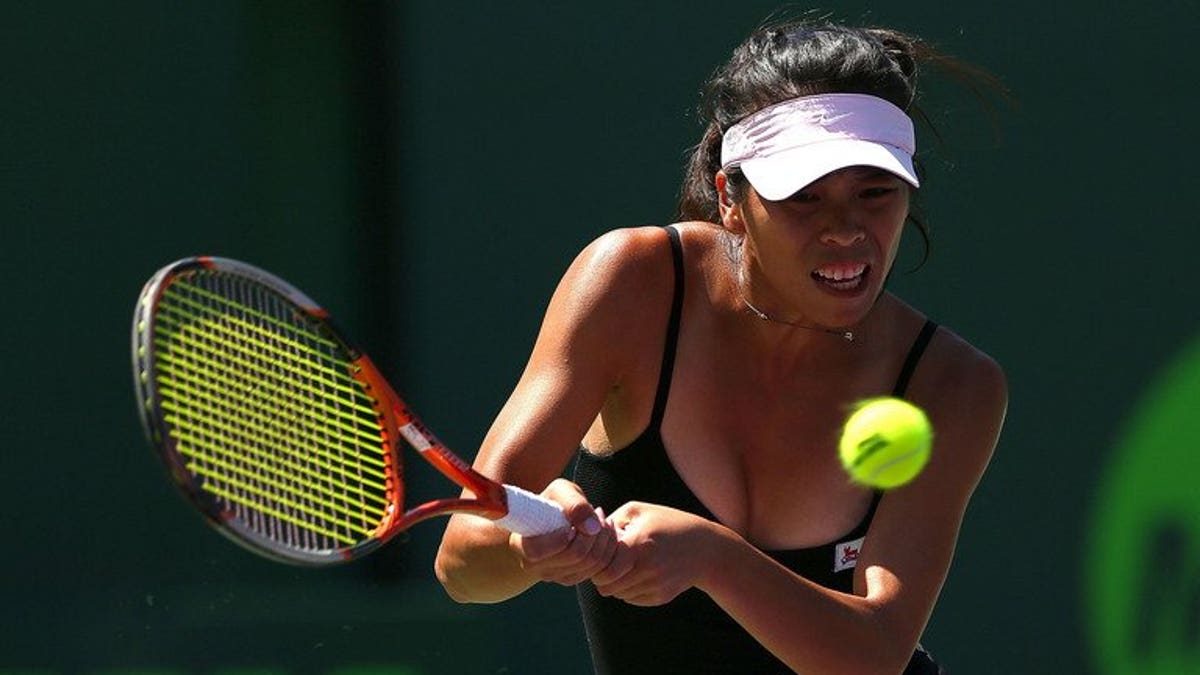
Hsieh Su-Wei of Taiwan plays a match against Agnieszka Radwanska of Poland during the Sony Open in Key Biscayne, Florida on March 21, 2013. Taiwan called on more companies to finance athletes amid concerns Hsieh Su-Wei might take up Chinese citizenship in exchange for a seven figure sponsorship deal. (Getty Images/AFP/File)
TAIPEI (AFP) – Taiwan called on more companies Tuesday to finance athletes amid concerns local tennis hero and Wimbledon women's doubles champion Hsieh Su-Wei might take up Chinese citizenship in exchange for a seven figure sponsorship deal.
China has been wooing Taiwan's top talent in sports including basketball, baseball, pool and golf amid warming ties with the island in recent years.
But that has created fears in Taiwan that the island is suffering from a so-called "brawn drain" as top players are lured by larger pay packets on the mainland.
Taiwan's Sports Administration said it now aims to secure pledges from at least 100 companies for more than Tw$100 million ($3.33 million) every year to finance around 50 athletes and groups.
"Taiwanese athletes have repeatedly delivered impressive performances in recent international competitions ... We hope to encourage local corporations to continue to contribute to sports," it said in a statement.
Hsieh became the first Taiwanese tennis player to win a Grand Slam title after she and her partner Peng Shuai of China beat Australian duo Ashleigh Barty and Casey Dellacqua on Saturday to win the Wimbledon women's doubles final.
But while Taiwan was basking in her glory, Hsieh's father, Hsieh Tze-lung, caused shock when he said his daughter may give up her Taiwanese citizenship to represent China in exchange for an annual 10 million yuan ($1.63 million) sponsorship deal offered by a Chinese brewery.
The deal would dwarf the 27-year-old's current total annual sponsorship income of just Tw$1.5 million, a sum paid by two local companies.
Taiwan said it will set up a platform to help match athletes with their potential corporate sponsors and stressed that there would be no limit in sport donations a company can declare for income tax deductions after a new regulation took effect last year.
In recent years a string of sporting heros have gone to the mainland, including top pool player Wu Jia-qing who gave up his Taiwanese citizenship in 2011 to represent Beijing.
The most alarming development for Taiwanese fans is perhaps in baseball, where Taiwanese coaches have been credited with playing an important part in China's rise in the sport.
Taiwan and China split in 1949 at the end of a civil war but Beijing still claims the self-ruled island as part of its territory awaiting reunification, by force if necessary.
